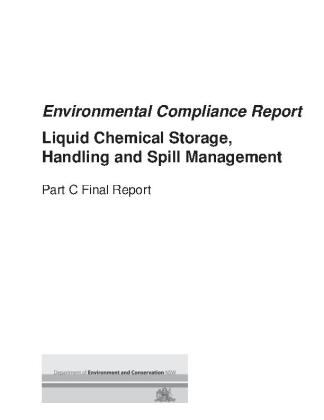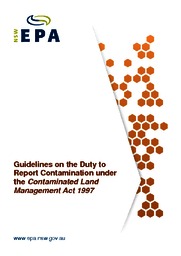The EPA is responsible for regulating chemical use or disposal in NSW, in partnership with other state government agencies.
Legislation administered by the EPA
Protection of the Environment Operations Act 1997
The Protection of the Environment Operations Act 1997 (POEO Act) regulates chemical pollution and waste management, and specifies licensing requirements for activities including hazardous waste generation, storage and transport.
From 25 March 2024, the POEO Act is also the primary legislation for regulating environmentally hazardous chemicals throughout their lifecycle. See Streamlining the NSW regulatory framework for managing industrial chemicals.
The POEO Act sets out requirements for:
- Industrial Chemicals Environmental Management Standard (IChEMS) Register as it applies in NSW to manage the environmental risks of industrial chemicals
- chemical use notices which require users of a specified chemical to provide information to the EPA about their use of the chemical
- chemical control orders (CCOs) which are used to manage specified hazardous chemicals and chemical wastes
- technology assessments which ensure that premises treating or destroying chemicals are safe and appropriate for their purpose
- licensing of individuals or industries who manage chemicals.
Other legislation
In addition to the POEO Act, the EPA regulates chemicals under other legislation:
- Contaminated Land Management Act 1997 regulates sites that are contaminated with chemical wastes that pose a significant risk of harm to human health and the environment.
- Pesticides Act 1999 regulates and controls the use of pesticides after they are sold to minimise risks from pesticide use.
- Protection of the Environment Operations (Clean Air) Regulation 2010 regulates chemical air emissions from industry, wood heaters, open burning, motor vehicles and fuels.
- Protection of the Environment Operations (Waste) Regulation 2014 regulates waste storage and transport and sets reporting and record keeping requirements for waste facilities. The regulation has special requirements for asbestos, including a special waste monitoring requirement, and prohibits the application of specified residue wastes to land where vegetation will be grown.
- Protection from Harmful Radiation Act 1990 and Protection from Harmful Regulation 2013 regulate and control radioactive substances, radioactive sources and radiation apparatus, but do not apply to radioactive ore while it is being mined or treated.
- Dangerous Goods (Road and Rail Transport) Act 2008 allows both the EPA and SafeWork NSW to regulate the transport of dangerous goods (other than explosives and radioactive substances) by road and rail as part of a national scheme.
- Waste Avoidance and Resource Recovery Act 2001 enables the EPA to regulate the management and disposal of chemical waste (PDF 572KB).
Legislation administered by other agencies
Agricultural and veterinary chemicals legislation
- The NSW Department of Primary Industries (DPI) regulates most veterinary chemical products used on animals under the Stock Medicines Act 1989.
- The Biosecurity Act 2015 and the Biosecurity Regulation 2017 regulate fertilisers as well as impose requirements for labelling stock foods and for contaminated standards.
- Fertilisers are regulated under the Fertilisers Act 1985
Food, health and work safety legislation
- SafeWork NSW through the Work Health and Safety Act 2011, regulates the health, safety and welfare of people in workplaces. Safework’s Model Code of Practice-Managing Risks of Hazardous Chemicals in the Workplace helps businesses manage health and safety risks associated with hazardous chemicals.
- The Pharmaceutical Services Branch of NSW Health administers the Poisons and Therapeutic Goods Act and Regulation to ensure that medicines are safely stored, distributed, prescribed and supplied.
- The NSW Food Authority regulates and monitors food safety throughout the supply chain under the Food Act 2003.



